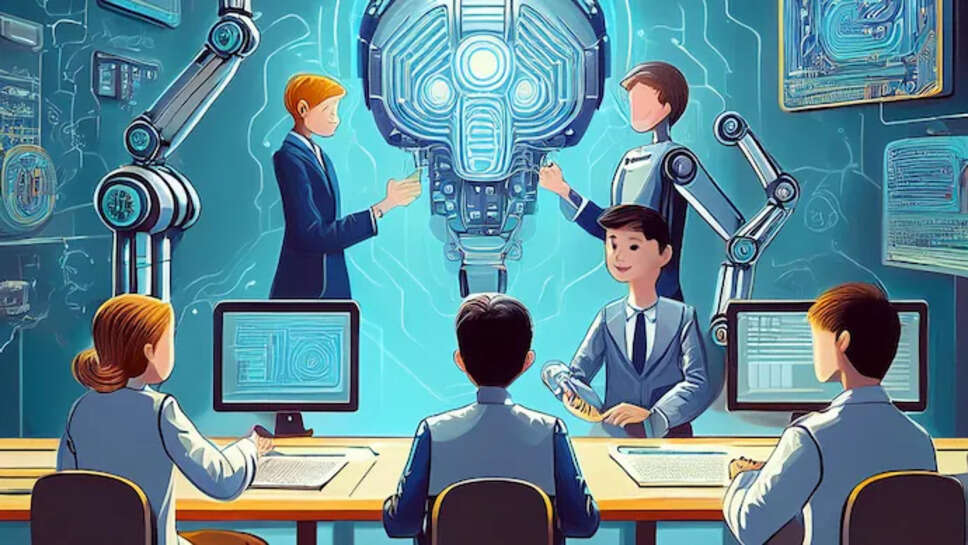Despite 107% Growth in AI Learning, India’s Global Skills Rank Remains Modest

India is riding a massive wave of interest in generative artificial intelligence (Gen AI), as reflected in a staggering 107% increase in Gen AI course enrolments on Coursera in the past year. This surge, however, presents a paradox: while more Indians are showing interest in the AI revolution, the country’s overall global rank in AI-related skill proficiency still stands at a modest 89th — highlighting a yawning gap between aspiration and capability.
The latest Coursera Global Skills Report 2025, which analyzes data from over 148 million learners across 100+ countries, paints a compelling picture of how India is engaging with new-age technologies like Gen AI, machine learning, data science, and cloud computing. The findings indicate that the country is rapidly expanding its learning ecosystem, but still has miles to go in building a globally competitive AI talent pool.
AI Learning in India: An Unmistakable Surge
The report shows that India recorded a 107% year-on-year rise in enrolments in Gen AI courses on Coursera, making it one of the fastest-growing markets for this domain. The increase is being driven by several converging factors:
-
Corporate reskilling mandates, especially in IT, consulting, and BFSI sectors
-
A rising number of students and fresh graduates seeking future-proof skills
-
Government-led initiatives like Digital India and Skill India
-
A sharp spike in media coverage and public curiosity about tools like ChatGPT, Midjourney, Claude, and GitHub Copilot
Top courses that saw the highest enrolments in India include:
-
"Generative AI for Everyone" by Andrew Ng
-
"Prompt Engineering for ChatGPT"
-
"Building Systems with the ChatGPT API"
-
"Generative AI with Large Language Models" by AWS and DeepLearning.AI
Notably, Tier 2 and Tier 3 cities contributed over 45% of new enrolments, indicating that the Gen AI learning boom is no longer confined to metros like Bengaluru, Hyderabad, or Pune.
Global Ranking: Why India Ranks 89th
Despite the enthusiasm, the report offers a sobering reality: India ranks 89th out of 100 countries in terms of AI skill proficiency, based on course completion rates, learner assessment scores, and applied project performance. For context, countries like Finland, Switzerland, Singapore, and Canada dominate the top spots, boasting a strong alignment between educational infrastructure, industry demand, and government support.
Some of the factors holding India back include:
-
Theoretical learning over practical application in many academic institutions
-
Limited access to advanced compute infrastructure for experimentation and research
-
Skill mismatches between what industries need and what universities offer
-
A digital divide, particularly in rural and low-income regions
-
Inadequate focus on AI ethics, data governance, and critical thinking
Demographics of India’s Gen AI Learners
The report also provides insights into the demographic profile of India’s Gen AI learners:
-
Age group 18–24 remains dominant, accounting for nearly 58% of total enrolments
-
Professionals in the 25–34 range made up the fastest-growing segment
-
A noticeable increase in female participation, rising from 26% last year to 33%
-
Top regions by learner volume: Maharashtra, Karnataka, Tamil Nadu, Delhi NCR, and Telangana
Interestingly, many learners are blending AI with other domains such as finance, design, healthcare, and education — indicating the growing awareness of Gen AI’s multidisciplinary potential.
Corporate and Academic Partnerships on the Rise
Coursera notes a marked increase in enterprise and academic partnerships in India to promote Gen AI upskilling. Over 400 Indian universities and more than 150 corporates are now using Coursera for campus or employee training.
Prominent collaborations include:
-
IIT Guwahati, which launched a Gen AI certification with AWS
-
TCS and Infosys, which mandated foundational AI training for their employees
-
UPES and Amity, which introduced integrated AI specializations into engineering degrees
Additionally, companies are encouraging prompt engineering, AI ethics, and real-world use case training through in-house learning platforms and workshops.
Policy Push and Ecosystem Support
India’s growing appetite for Gen AI learning is also being supported by national policies and initiatives:
-
National Education Policy (NEP) 2020, which emphasizes digital learning and interdisciplinary education
-
AI for All by NITI Aayog and CBSE, aimed at building AI awareness at the school level
-
Investment by the Ministry of Electronics and IT in AI research parks and innovation hubs
-
Launch of supercomputing facilities to enable data modeling, AI simulations, and large-scale computation for students and researchers
Despite these developments, experts argue that there needs to be better coordination between policy, industry, and academia to ensure meaningful outcomes from such training programs.
The Road Ahead: Challenges and Opportunities
India’s 107% surge in Gen AI course enrolments is a promising sign — one that reflects the country's eagerness to tap into the global AI opportunity. However, the low global rank signals the need for qualitative upgrades, not just quantitative enthusiasm.
Key steps forward include:
-
Embedding AI into formal education through curriculum reforms
-
Incentivizing hands-on projects, internships, and industry mentorship
-
Building access to GPUs and AI labs, especially in public institutions
-
Encouraging AI research publications, patents, and startups
-
Promoting inclusivity and accessibility in AI education across gender, region, and income levels
India stands at a critical juncture in its AI learning journey. While the 107% growth in Gen AI course enrolments is a clear indicator of rising awareness and intent, the 89th global ranking underscores the gaps that still need to be addressed in depth, infrastructure, and outcomes.
With the right mix of investment, policy, and collaborative effort, India has the potential to leapfrog in the global AI race. But for now, the data from Coursera offers a wake-up call: ambition is not enough — execution is everything.
.jpg)